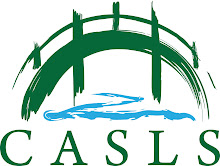From http://blogs.edweek.org/edweek/learning-the-language/2013/11/how_monolingual_teachers_can_s.html
How Monolingual Teachers Can Support Young Dual-Language Learners
By Lesli A. Maxwell
November 22, 2013
There's an accruing pile of evidence that teaching in English and a child's home language in the preschool and early elementary years is best for young dual-language learners, both for academic achievement and for English proficiency later in their school careers.
But consider that dual-language learners now represent nearly one-third of all children under the age of 6 in the United States. And consider that the vast ranks of early-childhood teachers are monolingual English speakers.
What can be done about that mismatch between demand and supply?
A new report from early-childhood and dual-language expert Linda Espinosa tackles that challenge head on with a slew of practices that any teacher can use to support the development of students' home languages and English. The report—published by the Migration Policy Institute—also profiles the young dual-language-learner population in the United States, many of whom are the children of at least one immigrant parent.
Espinosa outlines a number of teaching practices that monolingual educators can use. Among them:
• Using parents and community volunteers who speak the home languages in their classrooms;
• Providing books and materials in the home languages;
• Working with parents so that they can build concept knowledge on various topics in the home language before children are exposed to them in English.
Go to http://blogs.edweek.org/edweek/learning-the-language/2013/11/how_monolingual_teachers_can_s.html to access a link to the report.
November 24, 2013
Subscribe to:
Post Comments (Atom)





No comments:
Post a Comment
Note: Only a member of this blog may post a comment.